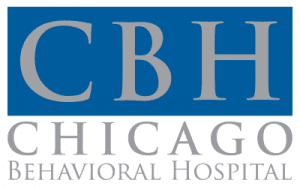Recognizing Suicide Prevention Month and Recovery Month: Raising Awareness and Holding Hope
September is both Suicide Prevention Awareness Month and Recovery Month. This offers us a unique opportunity to raise awareness about suicide, its triggers, and the process by which people can recover from mental illness and substance use disorders.
In the U.S., suicide is the second leading cause of death for people between 10 and 34 years of age. Suicide is the 15th leading cause of death worldwide, with over 800,000 people dying by suicide annually. Risk factors for suicide include genetic, psychological, social, and cultural factors as well as experiences of trauma, grief, and loss. The most common mental health condition among people who die by suicide is depression. For every one suicide, another 25 people attempt suicide.
Just as it is important to recognize the signs of a medical emergency, like a heart attack or a stroke, it is also important to recognize the signs of a potential mental health crisis that could lead to suicide. These signs may include:
- Talking about death or suicide
- Seeming depressed, hopeless, or helpless
- Talking about feeling like a burden to others
- Appearing anxious, irritable, or angry
- Other sudden mood changes
- Loss of interest or withdrawing from relationships or social activities
- Giving away possessions
- Finding ways to say goodbye
- Reckless behavior
- Increased use of alcohol or drugs
If you are concerned that someone in your life may be experiencing depression or suicidal thoughts, it is important to address these concerns quickly and effectively. Don’t be afraid to ask, “Are you thinking about suicide?” This question is important to understanding what they are really thinking. Research shows that asking about suicidal thoughts will not cause someone to consider suicide. In fact, people are often relieved that the question has been asked and they can freely talk about their feelings. Please don’t leave anyone alone who may be suicidal. Never keep suicide threats a secret.
At Chicago Behavioral Hospital, we believe in providing hope and helping people develop the necessary tools and supports to achieve and maintain their recovery. Our team is available 24 hours a day, 7 days a week to help those in need of treatment for conditions related to their mental health or substance use, including depression or thoughts of suicide. Assessments are free and confidential. Call us at 844-756-8600.
Suicide is preventable. Recovery is possible.
Additional helpful resources on suicide prevention:
International Association for Suicide Prevention
National Suicide Prevention Lifeline (800) 273-TALK (8255)





